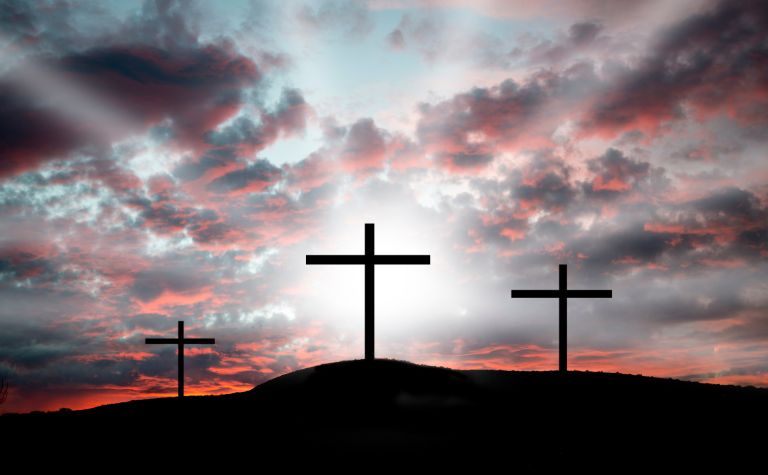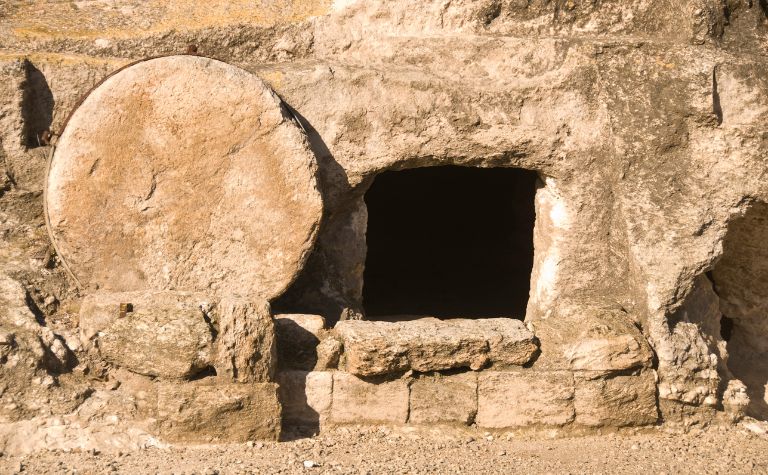The life of Jesus Christ is of supreme importance in Christianity. As recorded in the Gospels, who he was, what he did, and what he taught comprise the centerpiece of his followers’ faith, worldview, and values. Jesus said his mission was to seek and save those enslaved to sin (Luke 19:10; Rom. 3:23). He triumphantly accomplished his purpose one Friday and the following Sunday, and Christians love to celebrate it.
Resurrection Sunday is the annual celebration in Christianity of Jesus’ resurrection from the dead. “Easter” is a common name for the holiday, but some Christians and churches prefer not to use that term because there is historical evidence that it’s derived from the name of an Anglo-Saxon goddess.
Why is Resurrection Sunday important in Christianity? What is the origin of the word “Easter”? Who was Bede? Why do Christians celebrate Resurrection Sunday on different days each year? Keep reading to learn the answers to these questions and others.
Also, among the traditions that some Christians observe at this time of year is Easter Monday. Learn about the significance of the day and how people observe it.

Why is Resurrection Sunday important in Christianity?
Christians are celebratory people. The “good news” (i.e., the gospel) of Jesus Christ — that his death and resurrection enable salvation for sinners — characterizes their life, identity, relationships, future, and more. Because of their deep-abiding joy, believers can’t resist praising God, testifying of his goodness and faithfulness in their life, and commemorating the wonderful works he has done in the past.
The importance of the resurrection
Christianity wouldn’t exist if it weren’t for the resurrection of Jesus from the dead. Paul wrote that without the resurrection, the faith of believers would be meaningless. “And if Christ has not been raised, your faith is futile and you are still in your sins” (1 Cor. 15:17, ESV). The Greek word translated as “futile” (mataios) means useless and empty. The KJV translates the word “vain.” The NASB translates it as “worthless.”
| Greek word | μάταιος |
| Part of speech | adjective |
| Transliteration | mataios |
| Pronunciation | mat’-ah-yos |
| Definition | vain, useless |
The significance of the resurrection to Christianity can’t be overstated. Bible teacher Hank Hanegraaff writes, “The resurrection is not merely important to the historic Christian faith; without it, there would be no Christianity.” [1] Scholar Michael Green adds, “Christianity does not hold the Resurrection to be one among many tenets of belief. Without faith in the Resurrection there would be no Christianity at all.” [2]
Also, many Christians know that Easter doesn’t fall on the same Sunday each year and can even occur in different months. Discover why the date for Easter changes to learn more.

“Easter” vs. “Resurrection Sunday”
Some Christians and churches use the word “Easter,” yet some prefer to say “Resurrection Sunday.” Many Christians have used “Easter” for hundreds of years in reference to Jesus’ resurrection. However, some don’t like the term because of its association with early European paganism.
What is the etymology of “Easter”? The Oxford Dictionary of Christianity cites the work of an English monk, Bede, to explain the word’s history. “The derivation of the name ‘Easter” is uncertain. According to Bede (672-735 A.D.), it is connected with an Anglo-Saxon spring goddess ‘Eostere.'” [3] The dictionary further explains that Resurrection Sunday in England replaced an old pagan festival.
Why did Christians replace pagan holidays? Christians supplanted pagan customs with their own to demonstrate the triumphal victorious nature of their faith over other religions. This practice established Christian holy days in societies and ended pagan festivals and commemorations. The word “Easter” may contain remnants of paganism, but Christians may have intentionally hijacked it for their own use.
Does the word “Easter” appear in the Bible? The word appears once in the KJV translation. Acts 12:4 reads, “And when [Herod] had apprehended [Peter], he put him in prison, and delivered him to four quaternions of soldiers to keep him; intending after Easter to bring him forth to the people.”
The Greek word translated as “Easter” (pascha) in the KJV means “passover.” The other 28 times pascha appears in the New Testament, the KJV translates it as “passover” (e.g., John 2:23; Heb. 11:28). All other English Bible translations render the word “Passover” in Acts 12:4 (NIV, ESV, NLT, NASB), including the NKJV, which reads in part, “intending to bring him before the people after Passover.”
Why does Resurrection Sunday happen once a year?
Resurrection Sunday occurs every year in the Spring, but the date changes because of how church leaders established the holiday in the 4th century. At the Council of Nicea in 325 A.D., the Western church decided to celebrate Resurrection Sunday every year on the first Sunday following the new moon that occurs on or after March 21. The date varies between March 22 and April 25.
Eastern Orthodoxy celebrates Easter between April 4 and May 8 each year, after the first full moon following Passover.
Judaism is a religion that is directly connected to Christianity. Because of this, many people are interested to know if Jews celebrate Easter. See the article to learn the answer.

The importance of remembering Jesus’ resurrection
Jesus’ resurrection deserves thanksgiving and praise daily. However, annual celebrations in Christianity help believers and churches unite in their commemoration.
God has done countless extraordinary works in the lives of his people, which they recall in special ways. For example, Christmas, which Christians also celebrate once a year, recalls the birth of Jesus through the Holy Spirit to Mary and Joseph. The Lord’s Supper or Communion is another example of an important commemoration, which some believers observe every month, others every week, and some every day.
What happens when God’s people fail to remember him? Sometimes the Bible describes God’s people succumbing to sin because they didn’t remember him. For instance, Psalm 78:42-43 read, “They did not remember his power or the day when he redeemed them from the foe, when he performed his signs in Egypt and his marvels in the fields of Zoan” (ESV, emphasis added; cf. Psa. 106:7).
Did Jesus encourage people to remember him? Yes, when Jesus established the regular observance of the Lord’s Supper, he was mindful of people’s propensity to forget. After he taught his disciples about the bread representing his body and the cup representing his blood, he said, “do this in remembrance of me” (Luke 22:19). Paul later reiterated Jesus’ words about remembrance (1 Cor. 11:24).
“The bodily resurrection of Jesus Christ from the dead is the crowning proof of Christianity. If the resurrection did not take place, then Christianity is a false religion. If it did take place, then Christ is God and the Christian faith is absolute truth.” – Christian author Henry Morris
Also, some traditions in the Christian faith have unique observances of Easter. See when Greek Easter occurs to learn more.
References:
[1] Resurrection by Hank Hanegraaff. p. 15.
[2] Man Alive by Michael Green. p. 61.
[3] The Oxford Dictionary on Christianity. p. 437.
Related Questions
Christians love to celebrate the resurrection of Jesus Christ because his victory over sin and death is foundational to their faith (1 Cor. 15:17). Unlike other sacred days on the Christian calendar,...
The resurrection of Jesus Christ, along with his crucifixion, is the most important event in Christianity. Without it, the faith that Jesus founded would be groundless. As the Apostle Paul taught,...
